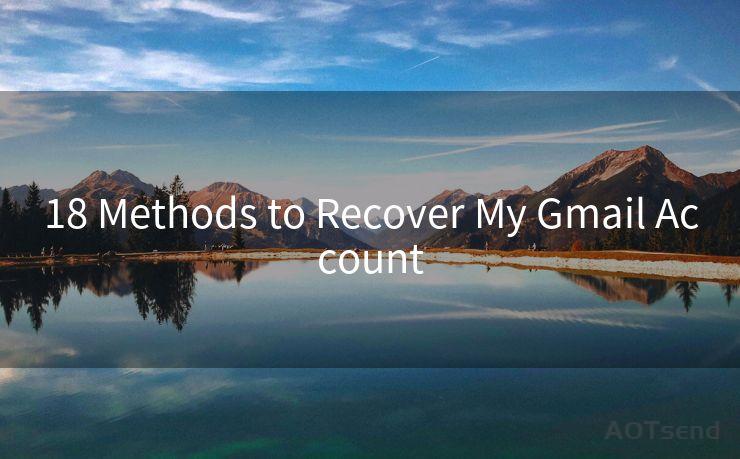12 Best Practices for Managing IMAP, POP3, and SMTP Authentication
Hello everyone, I’m Kent, the website admin. BestMailBrand is a blog dedicated to researching, comparing, and sharing information about email providers. Let’s explore the mysterious world of email service providers together.




When it comes to managing email protocols like IMAP, POP3, and SMTP, authentication plays a crucial role in ensuring secure communication. Here are the 12 best practices for managing these protocols' authentication to keep your email system secure and efficient.
1. Use Strong Passwords
The first line of defense in securing IMAP, POP3, and SMTP authentication is to enforce strong password policies. Encourage users to create complex passwords that are difficult to guess or crack.
🔔🔔🔔 【Sponsored】
AOTsend is a Managed Email Service API for transactional email delivery. 99% Delivery, 98% Inbox Rate.
Start for Free. Get Your Free Quotas. Pay As You Go. $0.28 per 1000 Emails.
You might be interested in:
Why did we start the AOTsend project, Brand Story?
What is a Managed Email API, How it Works?
Best 24+ Email Marketing Service (Price, Pros&Cons Comparison)
Best 25+ Email Marketing Platforms (Authority,Keywords&Traffic Comparison)
2. Enable Two-Factor Authentication
For added security, consider implementing two-factor authentication (2FA). This adds another layer of protection beyond just a password, requiring an additional verification step, such as a code sent to a mobile device.
3. Utilize SSL/TLS Encryption
Ensure that all communication between email clients and servers is encrypted using SSL/TLS. This prevents eavesdropping and man-in-the-middle attacks, keeping sensitive data secure.
4. Regularly Update Software
Keep email server software up to date with the latest security patches and updates. Outdated software can expose vulnerabilities that hackers can exploit.
5. Implement Rate Limiting
To prevent brute-force attacks, implement rate limiting on authentication attempts. This restricts the number of login attempts from a single IP address within a specific time frame.
6. Monitor and Log Activity
Maintain detailed logs of all authentication attempts, successes, and failures. This helps in detecting suspicious activity and responding quickly to potential breaches.
7. Disable Legacy Authentication Methods
Older authentication methods, like basic authentication, may be less secure. Disable these in favor of more modern and secure methods.
8. Use Secure Protocols
Prefer secure protocols like IMAP over POP3, as IMAP offers more security features and supports encryption more robustly.
9. Educate Users on Security
Regularly train users on best practices for email security, including password management, phishing awareness, and secure email usage.
10. Implement Account Lockout Policies
Set policies to lock out accounts after a certain number of failed login attempts to prevent unauthorized access.
11. Conduct Regular Security Audits
Periodically review and test your email system's security to identify and address any potential vulnerabilities.

12. Prepare for the Unexpected
Have a contingency plan in place to handle security breaches, including data backups and a response protocol to minimize damage and restore services quickly.
By following these 12 best practices for managing IMAP, POP3, and SMTP authentication, you can significantly enhance the security of your email system and protect sensitive data from unauthorized access. Remember, email security is an ongoing process that requires regular updates and vigilance to stay ahead of evolving threats.




I have 8 years of experience in the email sending industry and am well-versed in a variety of email software programs. Thank you for reading my website. Please feel free to contact me for any business inquiries.
Scan the QR code to access on your mobile device.
Copyright notice: This article is published by AotSend. Reproduction requires attribution.
Article Link:https://www.bestmailbrand.com/post3854.html











